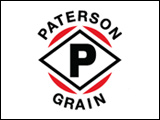Manitoba Pork Council reports interest among the province’s pork producers in participating in a new National Swine Biosecurity Training Program has been strong.
The National Swine Biosecurity Training program is based on the National Farm Level Biosecurity Standard developed by the Canadian Swine Health Board and has been launched in Quebec, Ontario and Manitoba.
The program is being coordinated nationally through the Swine health Board and is being delivered provincially by the provincial pork organizations and is open to registered pork producers as long as their premises have been certified under the Canadian Quality Assurance Program.
Manitoba Pork Council industry services coordinator Arnie Thorlacius says the program has been very popular in Manitoba.
Improved biosecurity is always advantageous to the producer.
It should help to improve the productivity of their site and avoid possible problems in the future.
On top of that it also helps to give the industry as a whole something of a better image.
If we seem to be proactive on issues like this it gives us a better reputation when it comes to things like exports.
If you can prove that you actually have a program in place where you are paying attention to biosecurity it should prove advantageous when you are trying to promote your product as being top quality.
It’s a similar idea to the Canadian Quality Assurance Program.
If you have a program in place to improve biosecurity it is proof that you are actually doing something to maintain or improve the quality of your product.
Thorlacius says 196 Manitoba producers had attended training sessions as of August 2nd and additional sessions have already been booked.
Further information on the National Swine Biosecurity Training program, including a list of veterinarians certified to provide training in Manitoba, can be obtained through the Manitoba Pork Council web site or by calling Manitoba Pork Council directly and additional information is available through the Canadian Swine Health Board web site.
Source: Farmscape.Ca



